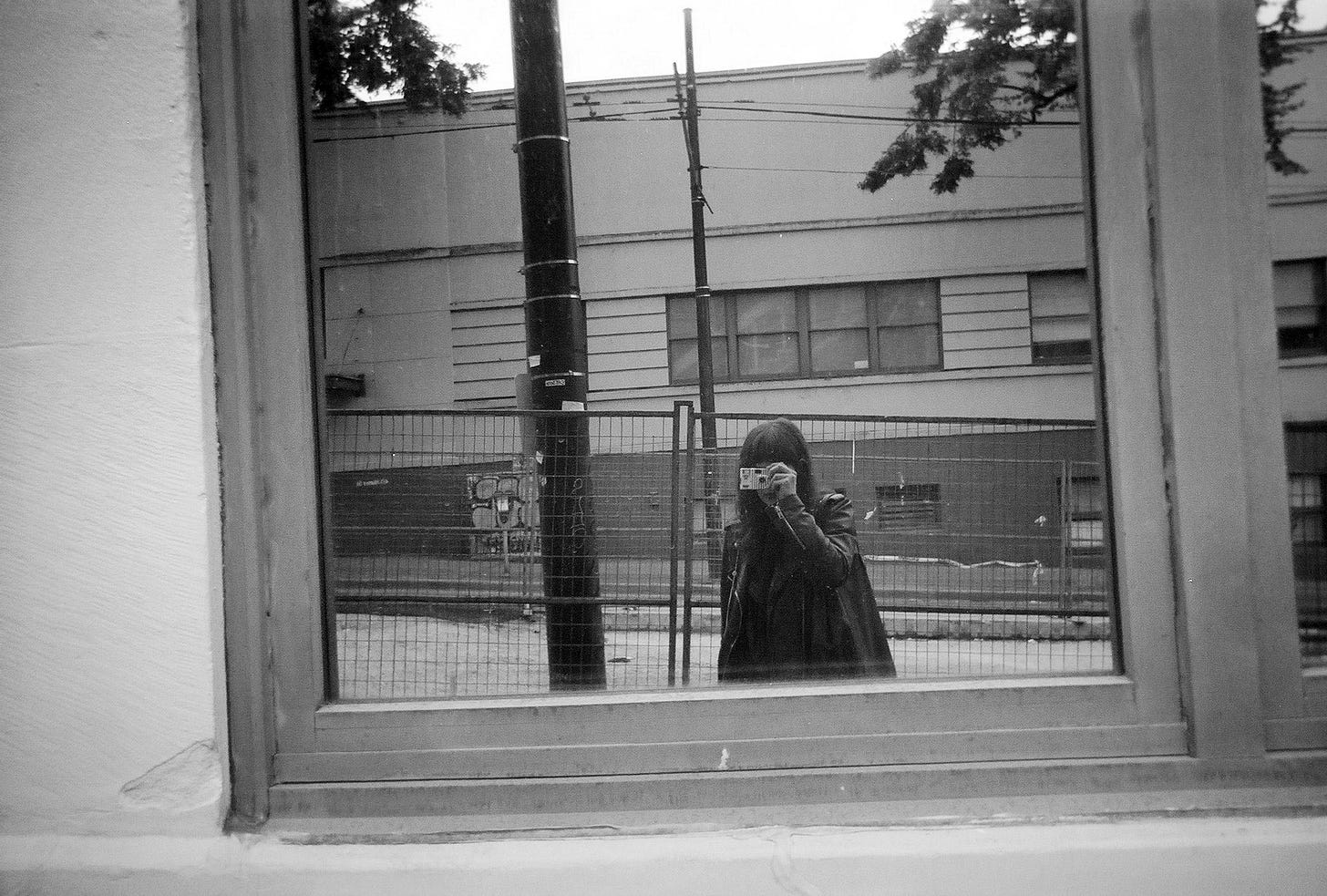Lights Under Concrete and Glass is a collection of prose poetry that explores the twenties of a cultural historian, pragmatic insomniac, and capital-R Romantic through splintered Vancouver nights. The pieces, in their variety, connect into a cultural ecology: a stack of blurry photographs that remember places and people at a certain time in a certain place, with their connections and proclivities.
For a person, the epoch between the ages of 20 to 30 is often a period of tumultuous growth. In parallel, during the same 2007-2017 era, the city of Vancouver has endured an intense and rapid period of change (that continues to snowball).
This collection, in part, is in reply to Charles Baudelaire’s Paris Spleen. The invention of the prose poem attributes to Baudelaire, with Paris Spleen regarded as the first book of prose poetry, as well as one of the earliest and most successful examples of urban writing. It beckons readers along a tour of 1850s Paris, through its gleaming cafés and filthy side streets, mapping the complexities of a metropolis during a decade of its own great changes.
The 1850s were a turbulent era of wars and mass migrations. In 1859, Charles Darwin published The Origin of Species. Charles Dickens serialized Bleak House in his own magazine, Household Words, between March 1852 and September 1853. America stitched railroads across its soil, amateur astronomer Richard Carrington witnessed solar flares, and Isaac Singer commercialized the sewing machine. (It doesn’t escape my notice that history jots the accomplishments of white men, but what we retain of the past depends so much on who’s writing it.)
“I love you, O infamous capital.” Baudelaire wrote to the throb of the avenue with electrified senses. 19th-century Paris transformed around him, as Napoleon III responded to a dip in popularity by increasing civilians’ civil rights and investing in public projects, such as broadening the city’s narrow streets to boulevards and brightening them with gas lamps. The city even hired a photographer to document the changes, Charles Marville.
In contrast to the changes that happened in 1850s Paris, motivated by a king who wanted to win back public approval, the changes in early 2000s Vancouver have been motivated not by public interests, but monied interests. The words growth and progress, which dapple discussions around the shifts jarring cities across the world, can lose the weight of their meaning through repetition without context. The rapid cost of living increases in Vancouver, now described as a crisis, has been touted as an inevitable aspect of growth. As a linguistics person, I think it’s important not to conflate words like growth and progress with greed — which to my observation, describes the force driving the trajectory of Vancouver with more accuracy.
Real estate investment firms purchase older walk-up apartment buildings where tenants have lived as neighbours for decades, raising children together and caring for each other when sick, and evict those tenants through legal loopholes (eg. if an owner’s family member moves in. One such landlord issued a notice to every tenant in the building, with a different family member named on each notice. Or, the landlord may claim the need to renovate — coining the term renoviction — and renovation or no, jack up the rent and move a new tenant in after the minimum six-month period required.)
The galleries, speakeasies, restaurants, and venues that I used to frequent have almost all been sold to developers and replaced with investment condos. The spaces in which I grieved and grew, with art and community, in the nuanced mess that is human life, no longer exist; I’ve documented them here, through lived, listened, and observed experiences. The pieces question the value of space. Is it strictly monetary? Is a space used to its best purpose when developed to highest commercial value, regardless of who that impacts? The pieces also explore the concept of value. Is the highest value attained financial, or is it found in what one fills their life with?
During my research, I found that every builder of the spaces that I was drawn to stated that within the foundation of its creation was the intent to organize a space for people to be together. The intent that we put into our actions and the world matters, even if its impact is invisible for years — it’s there.
The night isn’t a safe place and I courted its risks, while seeking its charms. These poems are beams thieved from a waxing moon, pressed between pages and preserved.


